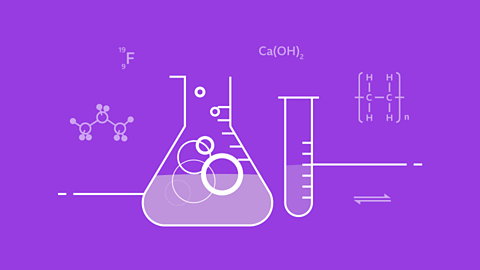Introduction
Try these quizzes based on GCSE chemistry past papers. By working your way through the chemistry questions created by experts, you can prepare for your chemistry exams and make your revision more interesting.
These questions are suitable for GCSE chemistry students studying any awarding body specification.
There are 50 exam-style questions and each activity contains ten questions.
Get started with the first ten GCSE chemistry questions
There are ten exam-style questions covering topics such as atomic number, ionic compounds and the Earth’s early atmosphere. This activity should take approximately 5-10 minutes to complete.
Practise your GCSE chemistry exam skills
There are ten exam-style questions covering topics including electronic structure, the law of conservation of mass and separating crude oil. These questions should take 5-10 minutes to complete.
Boost your GCSE chemistry revision with the next ten questions
There are ten exam-style GCSE chemistry questions based on past papers, covering topics including early ideas about atoms, alloys and properties of fractions. This activity should take you around 5-10 minutes to complete.
Keep going with the next ten GCSE chemistry questions
There are ten exam-style GCSE chemistry questions covering topics including group 1 elements, reversible reactions and dot and cross diagrams. This activity should take you around 5-10 minutes to complete.
Last push, final ten chemistry GCSE questions
There are ten exam-style GCSE chemistry questions based on past papers. This quiz covers topics including graphene and fullerenes, extraction methods and potable water. This activity should take you around 5-10 minutes to complete.
GCSE chemistry revision links
Click the links below to review any of the topics covered in the activities:
More GCSE exam quizzes
Take a look at more GCSE exam-style quizzes or try our quick-fire quizzes.
The tests are exam-style questions and scores do not directly reflect exam board marks or pass rates.
More on Exam practice
Find out more by working through a topic
- count3 of 3

- count1 of 3
